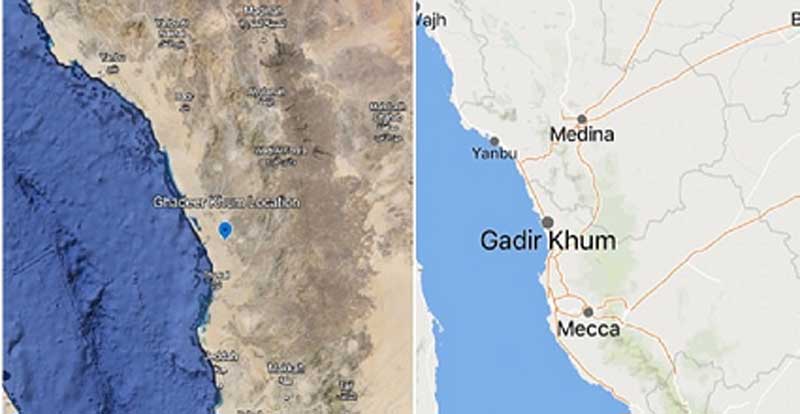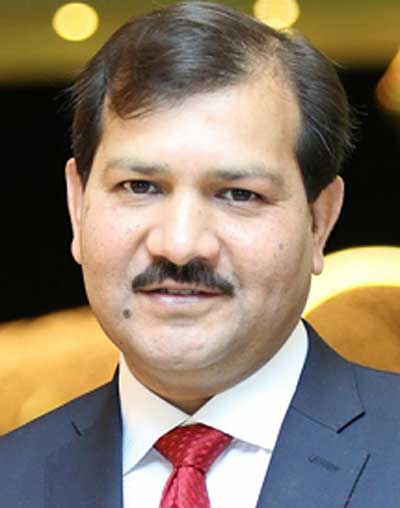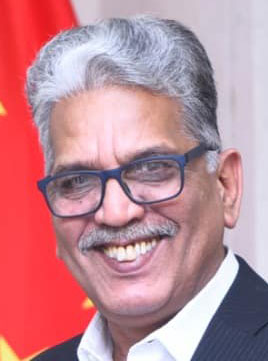Many important and historic events are named after a particular place where that event occurred. This is a centuries old phenomenon which is prevalent even now. For instance, treaty of Westphalia (1648) named after the region in Germany called Westphalia, ended the thirty-year war in Central Europe, Geneva Accord (1988) was signed in Geneva to end the war in Afghanistan, the Oslo Accord (1993) between Palestine and Israel is named after the secret negotiations which started in Oslo, Norway, Battle of Panipat (1526) fought at Panipat near Delhi, Battle of Badar (624 ) fought at Badar near Madina, Battle of Uhud (625) fought near Uhud Mountain, truce of Hudaybiyyah (628)which became an instrument for peace.

In Islamic history, the place “Ghadeer” has special significance due to the fact that very important announcement was made by the Last Prophet Muhammad (SAAW), announcing that “for whomever I am the Maula, Ali is his Maula”. By most accounts the event happened on 18th Zilhajj, as the Muslims were returning from Mecca to Madina after performing Hajj. Caravans at that time used to stay at different places during a long distance journey and one factor for choosing the place for stopover was the availability of water. There was a pond of water at the place known as Gadeer-e-Khum.
It is reported that an Ayat of Quran was revealed to Prophet Muhammad (SAAW) at Ghadeer-e-Khum:
O Messenger! Convey everything revealed to you from your Lord. If you do not, then you have not delivered His message. Allah will (certainly) protect you from the people. Indeed, Allah does not guide the people who disbelieve. (Sura Al-Ma’idah, 5:67).
After the revelation of this particular Ayat, Prophet Mohammad (SAAW) ordered that all the people must gather at one place and he delivered a sermon known as Khutba-e-Ghadeer. This event was witnessed by many people and there are several authentic narrators who havereported this in major compilations of Hadith. The Prophet (SAAW) said:
Of whomsoever I am a master, Ali is his master. My Lord! Befriend anyone who befriends him and make enmity towards anyone who makes enmity towards him.
While making this announcement he took the hand of Ali ibne Abi Talib (A.S) in his hand and raised it high for everybody to see. He further said, “It seems the time approached when I shall be called away (by Allah) and I shall answer that call. I am leaving for you two precious things and if you adhere to them both, you will never go astray after me, “Uphold the Book of Allah and my Itrat (Progeny, family of the Prophet, Ahal e Bait); so long as you uphold them both (simultaneously), you shall never stray after me.” Just as the Book of Allah is protected by Allah from any error, so is the case with the pure Progeny. The two shall never separate from each other until they come to me by the Pool (of Paradise).”
After this announcement, another verse of Quran was revealed (Surah Maida Verse 3):
“…This day I have perfected for you your religion and completed My favor upon you and have approved for you Islam as religion”
The irony is that the personality of Ali bin Abi Talib (A.S) is seen from sectarian lens which is a totally incorrect framework, because the Prophet Muhammad (SAAW) and his family is above any sectarian divide. In fact, all religions, nationalities, ethnicities, sects evolved over time. Such as after World War-II, many new nations emerged. Similarly, in Islamic history different sects, sub-sects, and schools of thought evolved over time, e.g. Deobandi school of thought originated from Deoband (India) in the 19th century, Barelvi sect originated from a Bareli (India) etc. These divisions occurred with the passage of time. It is tragic that we still see sectarian hatred amongst many people which often results in human casualties; this is totally against the spirit of Islam.
The real divide should not be on the basis of any nationality or sect, rather it should be based on the principle of truth vs Falsehood. This divide is prevalent since the time of Adam (A.S.) and Satan. Adam (A.S.) represents the values of Truth, Generosity, love, Wisdom, while Satan represents the values of falsehood, deceit, cunningness, hatred, jealousy. The tussle between negative and positive forces is continuous. We as humans don’t get to choose our time of birth, sect or religion, we simply acquire if from our families, society, education system etc. But we have a choice in speaking the truth, standing with the oppressed, earn our livelihood from fair means, be fair in fulfilling our professional and academic responsibilities.
Seeing things from a sectarian lens will act as a blockade to reach to the truth. A lie is a lie, it doesn’t matter if the person lying is a Christian, Muslim, Hindu, Jew, Shia or a Sunni. An act of murder or theft is a crime, no matter who commits the crime.Humanity is above any ethnic, religious, national or sectarian divide. For instance, during the recent brutal attacks on Gaza, people in Europe and America are openly condemning it, as a crime against humanity. Even some Jews in America are openly condemning this genocide, or when terrorists attacked APS Peshawar (2014), everyone condemned it as a human tragedy. Thus the framework to see things from the perspective of right vs wrong is a much better framework, as other lens such as sect, religion, nationality would make us biased and we may not see the complete truth.
Although different Islamic schools of thought agree on the authenticity about the Sermon at Ghadeer, but they are divided on the meaning of Maula. Some say it means Friend, some say it means Master, some say it means Leader. But it is obvious that prophet Muhammad (SAAW) is the Master, Leader, and by that logic Ali (A.S) would also be our Master, Leader, and not a friend. Despite the differences, the uniqueness of Ali Ibne Abi Talib (A.S.) is obvious and the act of holding his hand is very significant. The event of Ghadeer is not taught in schools, colleges and neither mentioned in the most of the Friday sermons, naturally there was ignorance in our society about Ghadeer.
The next logical question would be what it means to follow Ali (A.S.) as a Master and Leader? Would it suffice to pronounce this hadith only and not follow him in our daily life? The life of Ali Ibne Abi Talib (A.S.) is a story of obedience of Allah, love and utmost sincerity for Prophet (SAAW). He proved this love by his actions. Whether it was responding to the call of Prophet (SAAW) as a child, sleeping on the bed of Prophet (SAAW) on the night of migration to Madina, killing many notables of Quraish in the battle of Badr, responding thrice to the call of the Prophet (SAAW) to fight Amr ibn Abd Wadd, when nobody else responded, and eventually defeating Amr, in the battle of trench (Khandaq), standing firm with the Prophet (SAAW) in the battle of Uhud as Muslims retreated, killing Marhab in the conquest of Khyber Fort, performing the burial and last rites of the Prophet (SAAW). He was seen everywhere as a Man of Action, and a true follower of Allah’s commands and sayings of Prophet (SAAW), as Allah himself said in Quran, “Follow Allah and Follow Rasul (SAAW) (4:59).The children of Ali (A.S) and Fatima (A.S), Hassan (A.S) and Hussain (A.S) stood firm against all tyranny and gave the ultimate sacrifice for the sake of Islam. Every political leader in Pakistan mentions the name of Hussain ibne Haider (A.S) as a role model for standing against oppression, as human history has yet to witness any other comparable episode of courage, sacrifice, unwavering stance for truth. Moreover in Pakistan Army the highest award for bravery and sacrifice is named after Ali ibne Ali Talib (A.S), i.e. Nishan-e-Haider.
The real change in our society will come when we follow the divine instructions. For Muslims, Quran holds a special place as this is a word of God. Allah orders Muslims to obey the Prophet (SAAW): “O you who have believed, obey Allah and obey the Messenger and those in authority among you. And if you disagree over anything, refer it to Allah and the Messenger, if you should believe in Allah and the Last Day. That is the best [way] and best in result”, 4-59. In another Ayah from the holy Quran, it is said: “Say, ‘I do not ask you for any payment for this [message], except [for] love of [my] relatives.’ (Surah Ash-Shura, verse 23)
By this Quranic rule, whatever the Prophet (SAAW) says is binding on Muslims. The Prophet (SAAW) has termed Ali (A.S.) as the door to knowledge, the divine instructions about the marriage with Hazrat Bibi Fatima Zahra (S.A.) with Ali ibne Abi Talib (A.S.) was also revealed by angel Gabriel. In another saying the Prophet said: Whoever abuses Ali abuses Me. It is also reported in Hadith, that “Ali is with Haq and Haq is with Ali”, “Ali is with Quran and Quran is with Ali”.
The word Eid in Arabic signifies happiness, some sections of the society term it as Eid-e-Ghadeer, because it is an occasion of great joy Happiness is a choice and it can be expressed in many ways, some would distribute food, some would wear special dress, some would hold the Mehfil-e-Milad, some would do lectures, seminars etc.
Every ritual has a deeper meaning which captures the essence of that ritual, such as fasting teaches us to have self-control and give up bodily desires in compliance of Allah’s order, the act of sacrificing animals on Eidul Azha is a reminder of Allah’s obedience and care for the less privileged people, similarly Eid-e-Ghadeer signifies, following the footsteps of Ali in our daily life, proving the love for Allah, Prophet Muhammad (SAAW) through our actions and conduct. Whether we are students, teachers, businessmen, professionals in public or private sector, laborers, daily wage earners, we have to do the right thing and fulfill our individual responsibilities towards our family, society, country and the creator of this world, Allah Almighty. The day also signifies the importance to become seekers of Knowledge,uphold the values of truth, compassion, justice, righteous in our conduct and become fearless in fighting falsehood, but in doing so one must remain graceful like Ali ibne Abi Talib (A.S) and perform every action with the pure intentions. As Allama Iqbal said we should be men of Actions.




